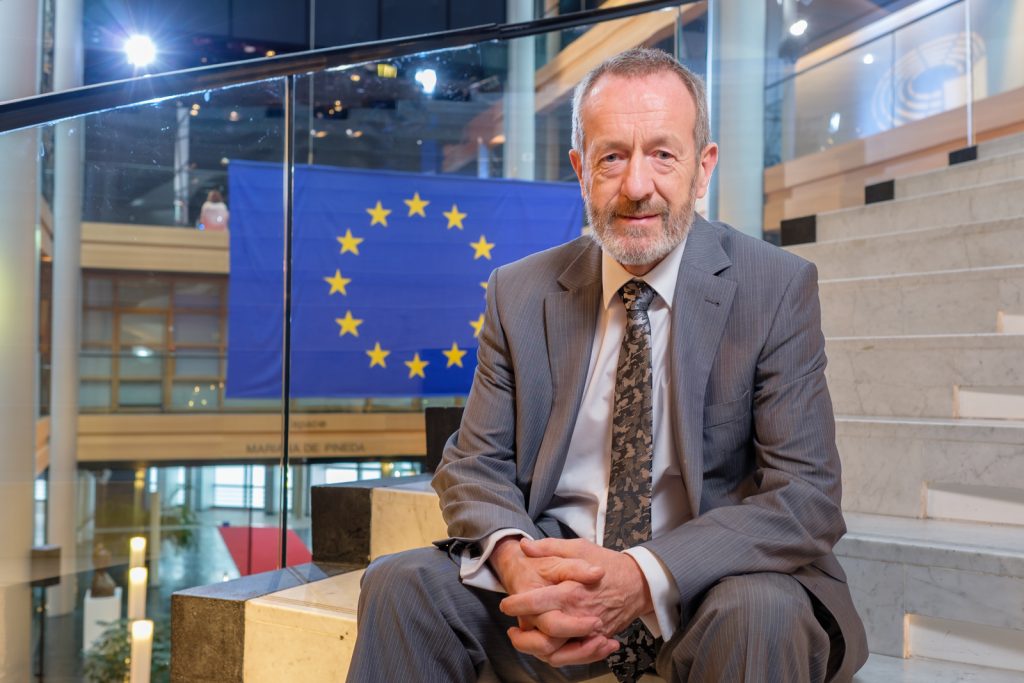Published: Thu, 25 March 2021
Share this

We are about to launch the new Erasmus+ programme for education, training, youth and sport (2021-2027). This iconic programme, a symbol of European integration, will build on the success of its predecessors over the past three decades.
The new Erasmus+ programme will address new challenges in school education, vocational training, higher education, adult learning, youth and sport. It will mobilise these sectors to work for swift recovery and future growth while supporting green and digital transitions as well as fostering inclusion.
A number of new elements in the programme will help us achieve these goals.
The new Erasmus+ will be larger than its predecessor, with a 7-year budget of more than €26 billion. This represents a considerably strengthened funding compared to the previous programme, worth €14.8 billion.Thanks to this increase, around 10 million people across the European Union and beyond will benefit from time spent abroad to learn and develop skills and competences in support of their personal, social or professional development. In 2019, there was 11,319 participants in 250 projects across all sectors of education and youth in Ireland benefited from Erasmus+ in 2019, with increasing participation rates year on year.
Enhanced Erasmus+ will be at the heart of our efforts to make the European Education Area a reality by 2025. It will contribute to the new Digital Education Action Plan, the European Skills Agenda, the EU youth strategy and the European dimension in sport. It will help remove barriers to quality learning for all and enable learners to move more easily around Europe’s education systems.
A wider variety of people and organisations will be able to participate in the new programme. The benefits that Erasmus+ brings will be accessible to more people with fewer opportunities, including those with a socio-economic disadvantage or people with disabilities. Many Europeans, regardless of their backgrounds or where they live, will be able to benefit from the opportunities offered by the programme.
School pupils and adult learners will be able to spend a period abroad, in groups or as individuals. The programme will be more accessible to smaller, grassroots organisations, like youth groups and sports clubs so that Erasmus+ funding reaches the people who would benefit most from it.
The current COVID-19 crisis has made it clear that Erasmus+ must play a vital role in preparing both individuals and organisations for the digital transformation. It must help to support the competences of both teachers and learners to make good use of digital tools and boost Europe’s capabilities in core forward-looking sectors such as artificial intelligence, robotics and environmental engineering. The pandemic has reinforced the need for more flexible learning formats, such as blended and virtual learning. Building on the success of the Digital Opportunity Traineeships, more opportunities will be possible for students, graduates and staff in higher education and vocational education and training to acquire and develop their digital skills without affecting mobility which has to remain at the heart of the programme.
Erasmus+ has a substantial contribution to make to the European Green Deal. As the programme has become a synonym for free movement of learners, it needs to lead by example and encourage participants to use lower-carbon means of transport. Erasmus+ funding will also help build knowledge and understanding of sustainability and climate action, so that Europeans build the world-leading competences needed to create more sustainable societies, lifestyles and economies.
Erasmus+ will support the full rollout of the European Universities Initiative. European Universities reinforce cooperation between higher education institutions across Europe, based on a shared long-term vision. They set up European inter-university campuses where students can move seamlessly to study, train, teach or do research, designing their own flexible curricula leading to a European Degree. Erasmus+ will help develop ‘Centres of vocational excellence’, establishments offering vocational education and training that will act as drivers of excellence and innovation for developing skills and competences relevant for the labour market.
The new Erasmus+ Teacher Academies will pool expertise and provide training to teachers and trainers, bringing together good practices and supporting the teaching profession.
Under Erasmus+, the DiscoverEU initiative will support 18-year olds to travel by train or, where unavailable, other modes of transport across Europe, connecting with each other and discovering Europe’s rich and diverse cultural heritage.
The newly featured youth participation projects will give more space and opportunities to young people to take an active role in civic and democratic life. This can strengthen their sense of being European and build more bridges between younger generations and decision-makers at both European and national level.
The new programme will be simpler. One example is the European Student Card initiative. This represents significantly simplified and digitalised administrative processes for student mobility. Through its Erasmus+ Mobile App and the Erasmus Without Paper Network, it will serve as a one stop digital shop for students and universities.
Erasmus+ is more relevant than ever and a key part of the EU’s long-term response to the Coronavirus crisis, helping to strengthen the resilience of the education, training, youth and sport sectors and contributing to the green and digital transformations.
Authors:
Commissioner of Innovation, Research, Culture, Education and Youth, Mariya Gabriel
Sean Kelly MEP